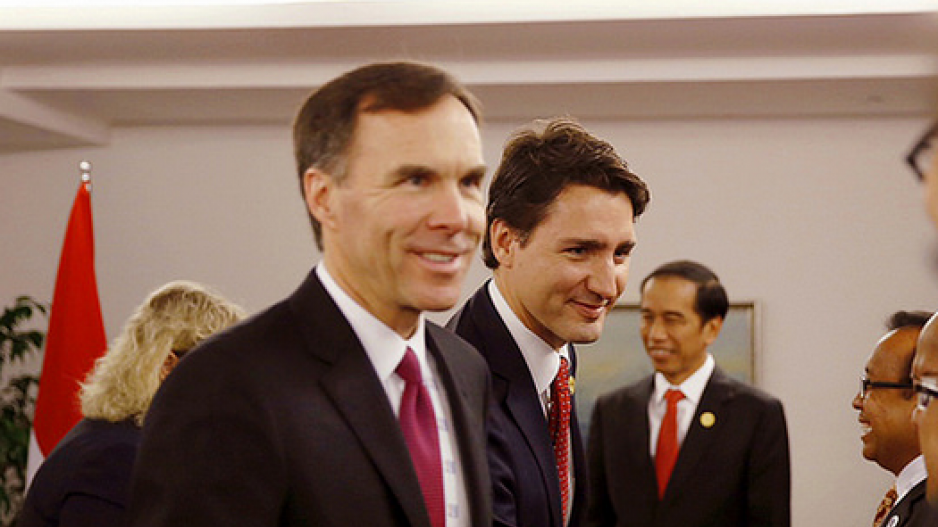Competitiveness has been a headline issue for a broad range of B.C. sectors that business leaders wanted to see addressed in last month’s provincial budget.
They have the same ask for the federal government ahead of its final budget this term.
“The government is going to have to assess if enough has been done to further address the impact of the U.S. tax reform on Canada’s economy,” said Dean Landry, national tax leader with PwC Canada.
The federal government’s fall economic statement addressed this in part. It allowed Canadian businesses to claim a full and immediate tax deduction for newly acquired manufacturing, processing and clean-energy equipment. B.C. forecasts the province will forgo $800 million in corporate tax revenue over the next three years as a result.
“The big question is – is this going to be enough?” Landry said in a PwC Canada federal budget prediction video.
He pointed to a reduction in corporate income taxes, an increase in the loss carry-back period, a decrease in personal tax rates or a new intellectual property tax regime as potential policy options to address competitiveness challenges.
James Moore, a senior business adviser at Dentons and a former Conservative minister of industry, recently told Association for Corporate Growth British Columbia members not to expect much movement on tax competitiveness in the budget.
He believes 2019 will be a lost year for public policy as political parties ready their election campaigns, and the federal Liberal party grapples with internal fallout related to the government’s handling of SNC-Lavalin’s (TSX:SNC) legal action.
Nearly 500 companies, organizations and institutions submitted briefs to the federal government’s pre-budget consultation. They provided insight into how various sectors and industries would like to see Canada’s competitiveness addressed.
Here is how B.C. players suggest Canada address various competitiveness issues in its March 19 budget.
- Airbnb urges Canada to recognize that a new taxation regime is required for short-term rentals.
- BC LandAqua Ventures Inc. wants a 25% refundable capital cost tax credit for the first 15,000 tonnes of land-based salmon farm production facilities built each year.
- The Canadian Chamber of Commerce recommends government provide certain technology business investors with a 30% refundable tax credit of up to $200,000, along with a tax exemption on venture capital gains.
- D-Wave Systems Inc. asks government to consider matching funding for industry investment in and exploration of quantum application development.
- Goldcorp Inc. (TSX:G) posited tax incentives for companies investing in innovative startups, along with matching government grants for innovations that have secured support from resource companies.
- MNP LLP suggests lowering the combined corporate tax rate to 20% from 27%, allowing small-business rollovers for private businesses and expanding personal tax bracket thresholds.
- Teck Resources Ltd. (TSX:TECK.B) recommends Canada adopt an indefinite non-capital loss carry-forward period, and enshrine an output-based allocation system for carbon pricing that ensures a 75% to 80% rebate.
- Telus Corp. (TSX:T) wants Canada’s capital cost allowance program to extend to investments in digital technology infrastructure. It also wants government to accelerate the timeline for the 3.5-gigahertz spectrum band auction to support the development of 5G innovation.
- Tilray (Nasdaq:TLRY) has asked government to remove its excise tax on medical marijuana. It is also calling for a minimum two-year delay on a 2.3% tax on gross cannabis revenues, which it argues creates “a toxic environment for investment”
- The Urban Development Institute told BIV it would like to see a GST exemption extended to construction materials.
- The Vancouver Fraser Port Authority recommends government increase funding for its $2 billion National Trade Corridors Fund and give Canada’s port authorities greater access to capital.




